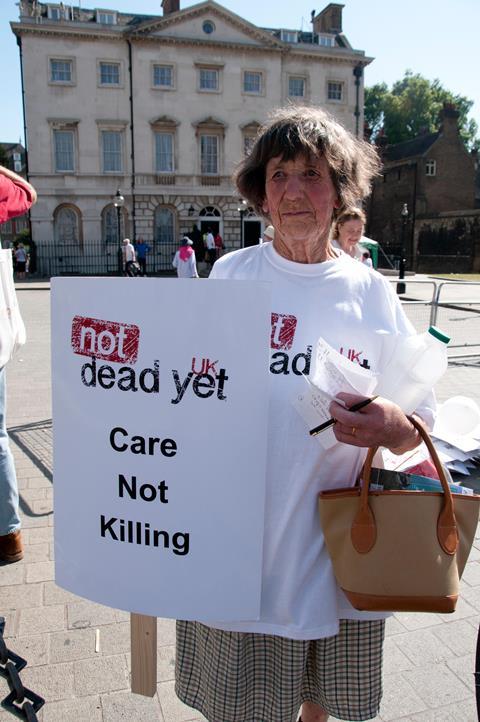‘The Bible extensively addresses the sanctity of life, and how believers should approach suffering, death, and God’s sovereignty over life and death,’ says Ann-Louise Graham, in the light of former Archbishop George Carey suggesting the contrary.

This past week, Labour MP Kim Leadbeater formally introduced a private member’s bill addressing the contentious issue of assisted suicide in England and Wales, also known as assisted dying, depending on one’s stance in the ongoing debate.
Former Archbishop George Carey has voiced his support for the bill, reversing his previous stance. In an article, Mr Carey states that during the upcoming debates, Bishops will not cite a Bible passage that “straightforwardly addresses assisted dying.” He argues the reason for this is that “the problem of pain at the end of a life prolonged by modern medicine is simply not addressed in the good book.”
While it’s true that the Bible does not explicitly address assisted suicide, that does not mean the Scriptures are silent on the matter.
While it’s true that the Bible does not explicitly address assisted suicide, that does not mean the Scriptures are silent on the matter. In fact, it is vital that we allow the Bible to inform our understanding of this profoundly important, life-and-death issue.
The Bible extensively addresses the sanctity of life, and how believers should approach suffering, death, and God’s sovereignty over life and death. It also speaks to humanity’s hope in the face of suffering, and our moral duty to care for the weak and vulnerable. While Christians have traditionally opposed assisted suicide, believing that only God should determine the end of life, recent research suggests that popular Christian opinion may be shifting in favour of such legislation.
The upcoming debate on the proposed law is expected to focus on two main concerns, according to Mr. Carey. First, the law could represent a slippery slope, whereby “assisted dying will lead to voluntary euthanasia.” Second, some vulnerable individuals could be coerced into assisted suicide by their relatives. Despite fears from organizations like Care Not Killing, which argues for improved, underfunded palliative care in the UK, Mr. Carey contends that both of these concerns could be addressed through legal safeguards. The opponents of the Bill argue, however, that it is naive to assume we will implement assisted suicide laws more effectively than other countries, such as Canada, where the criteria have been broadened and safeguards weakened.
First, the law could represent a slippery slope, whereby “assisted dying will lead to voluntary euthanasia.”
Instead of quickly shifting the discussion to a potentially rights-based argument about the choice to die, our primary focus should be ensuring our Christian, biblical viewpoint is represented in this debate. This is crucial - not least - because, without it, we risk overlooking the choice to live.
The central question, surely, is whether it is ever morally justifiable to assist another person’s suicide. If we frame this issue predominantly in terms of rights, we risk overlooking the fundamental moral and biblical principles that are essential to this discussion, even when faced with significant suffering.
Read more on death and dying
Even though my views on assisted suicide may differ from Mr. Carey’s, like him, I believe we all have a responsibility to engage in this critical discussion, regardless of our specific stances or denominations. We dare not disqualify ourselves from this debate at a time when, as Christians, we are fighting for a voice in our non-Christian culture.
The details of the Terminally Ill Adults (End of Life) Bill have not yet been published but are expected in the coming weeks.
On Friday 29 November, the Commons will hold its first debate and vote on this controversial issue in nearly a decade.




































1 Reader's comment